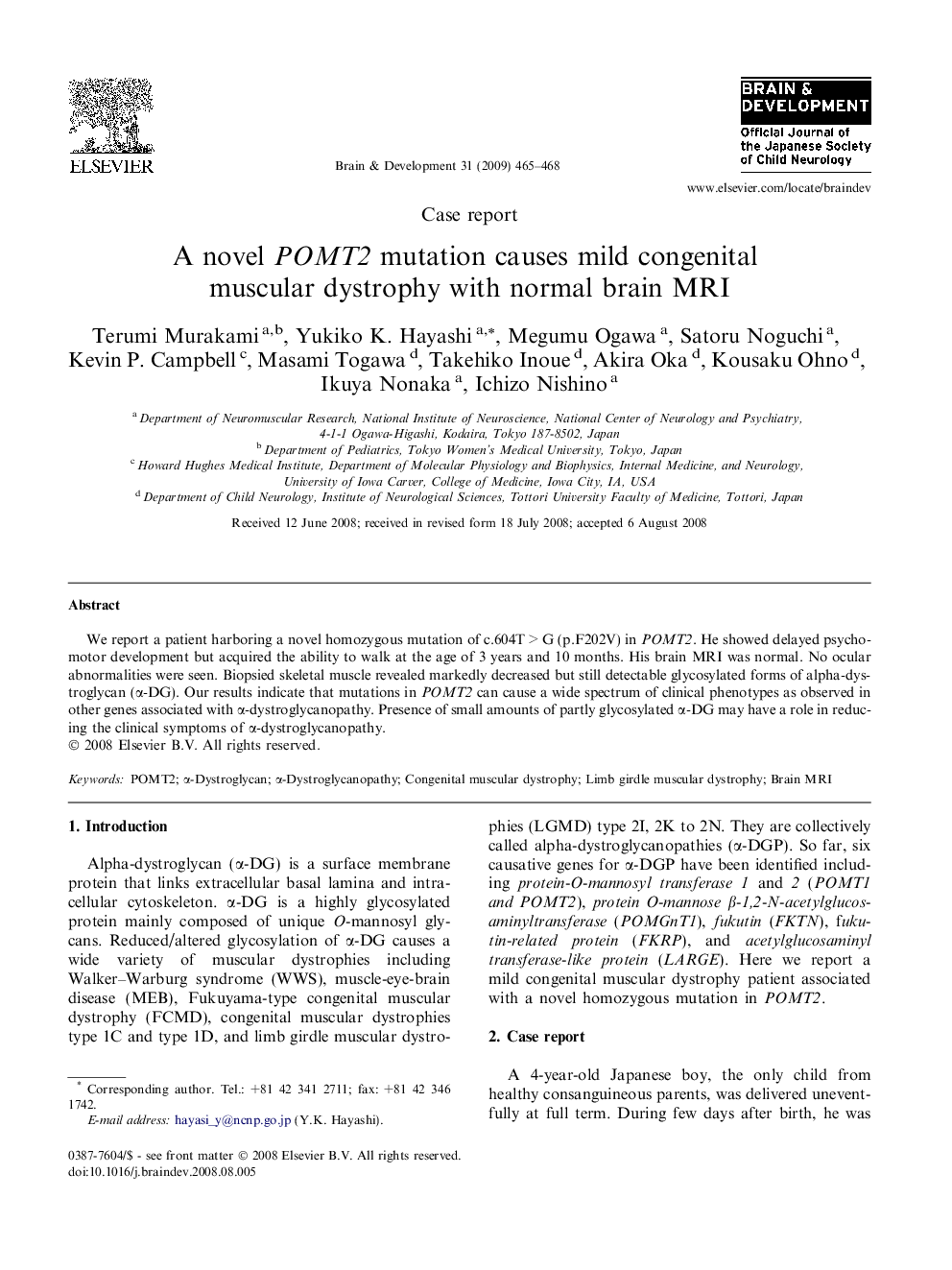| Article ID | Journal | Published Year | Pages | File Type |
|---|---|---|---|---|
| 3037978 | Brain and Development | 2009 | 4 Pages |
Abstract
We report a patient harboring a novel homozygous mutation of c.604T > G (p.F202V) in POMT2. He showed delayed psychomotor development but acquired the ability to walk at the age of 3 years and 10 months. His brain MRI was normal. No ocular abnormalities were seen. Biopsied skeletal muscle revealed markedly decreased but still detectable glycosylated forms of alpha-dystroglycan (α-DG). Our results indicate that mutations in POMT2 can cause a wide spectrum of clinical phenotypes as observed in other genes associated with α-dystroglycanopathy. Presence of small amounts of partly glycosylated α-DG may have a role in reducing the clinical symptoms of α-dystroglycanopathy.
Related Topics
Life Sciences
Neuroscience
Developmental Neuroscience
Authors
Terumi Murakami, Yukiko K. Hayashi, Megumu Ogawa, Satoru Noguchi, Kevin P. Campbell, Masami Togawa, Takehiko Inoue, Akira Oka, Kousaku Ohno, Ikuya Nonaka, Ichizo Nishino,
